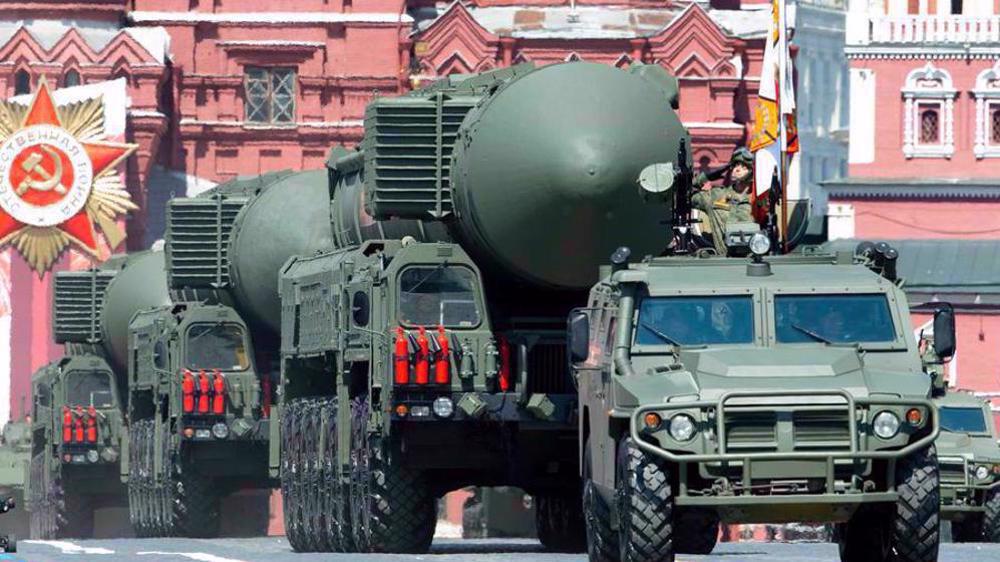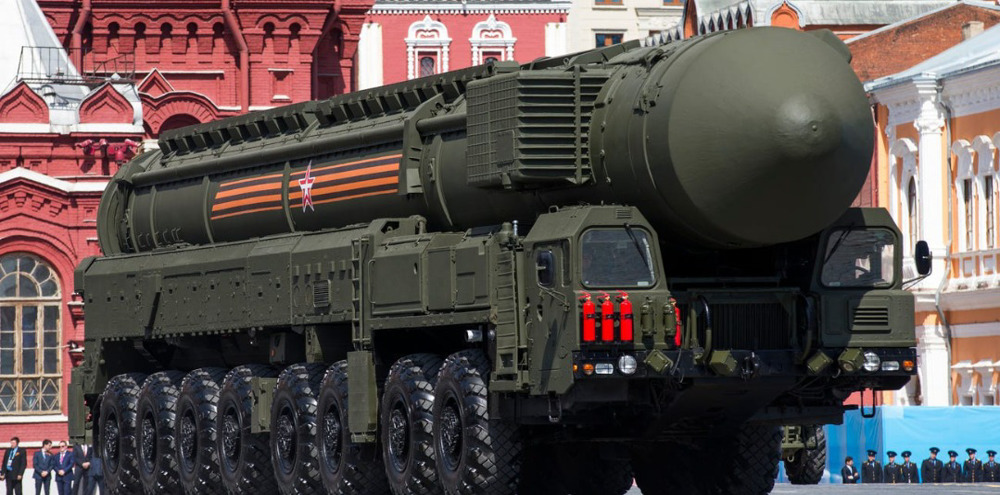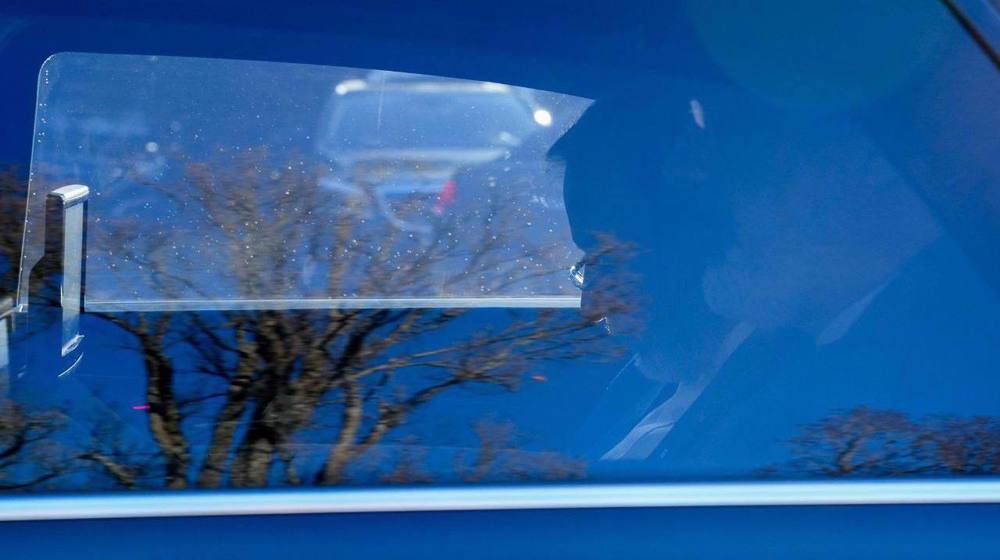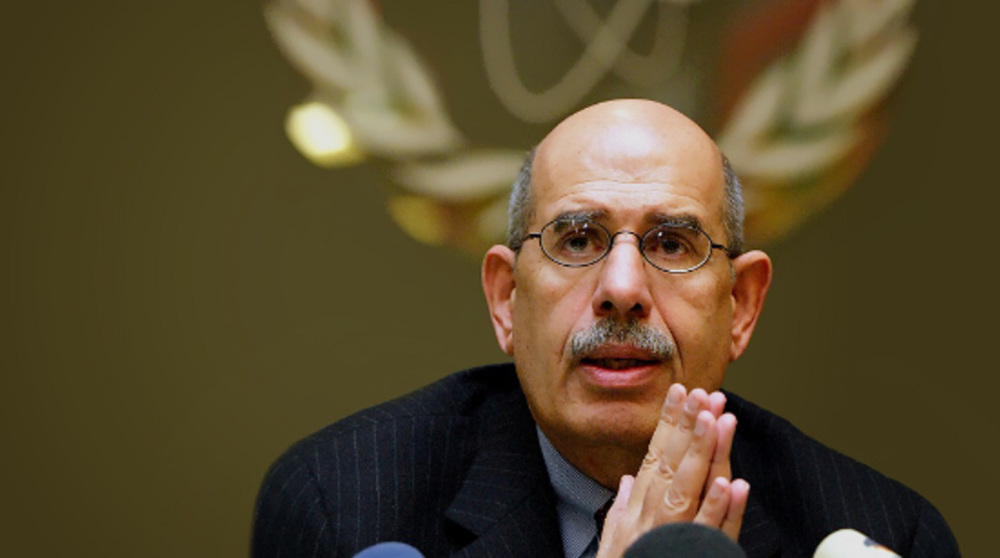US: Russia may lean into nuclear threat as conflict drags on
The United States believes that Russia may lean into its nuclear threat to project its strength as its military operation in Ukraine drags on, according to an assessment from the Defense Intelligence Agency.
The assessment was detailed in a report on global threats submitted to the House Armed Services Subcommittee on Intelligence and Special Operations on Thursday.
“As this war and its consequences slowly weaken Russian conventional strength, Russia likely will increasingly rely on its nuclear deterrent to signal the West and project strength to its internal and external audiences," wrote Lt. Gen. Scott Berrier, director of the Defense Intelligence Agency.
On February 27, Russian President Vladimir Putin put the country’s nuclear deterrence forces on “high alert,” reacting to aggressive statements by NATO’s leading members.
"Top officials of leading NATO nations indulge in making aggressive statements about our country,” Putin told a briefing. “Therefore, I am ordering the minister of defense and the chief of the general staff to put the deterrence forces of the Russian army into special combat duty mode.”
The announcement came after Germany and other European countries said they would speed weapons and other military assistance to help Ukraine battle Russian forces. It also followed a warning by UK Foreign Secretary Liz Truss that if Russia's military operation in Ukraine was not "stopped," it could lead to a conflict with NATO.
In the report, Berrier said the order and other comments from Moscow touting its nuclear arsenal “are likely intended to intimidate.”
He added Russia believes that the threat of nuclear weapons could either force an adversary to negotiate an end to the conflict on terms favorable to Moscow, or deter other parties from entering the war as progress elsewhere stalls.
Berrier writes that Russia is “determined to restore a sphere of influence over Ukraine and the other states of the former Soviet Union which is a key driver for Russian military aggression against Ukraine.”
Therefore, Russia “appears determined to press forward,” he said.
“The Kremlin likely calculates that a victory over Ukraine will compel most of the Soviet successor states to align themselves more closely with Moscow, but a military setback for Russia or a lengthy drawn-out campaign in Ukraine probably will have the opposite effect,” he continued.
The Russian Defense Ministry said in a statement on Friday that Russian troops and pro-Russia forces were fighting in the center of the Russia-besieged town of Mariupol.
It said that separatists from the self-proclaimed Lugansk People's Republic had also "liberated more than 90 percent of the republic's territory."
Since Russia launched its military campaign in Ukraine on February 24, several cities in the east have been effectively cut off by constant fighting. Several attempts to transport civilians from the towns failed, and both Moscow and Kiev have accused each other of violating the ceasefire they had agreed to earlier this month.
According to Mariupol's authorities, at least 2,100 people have been killed in the city and 80 percent of its housing has been destroyed.
The United Nations warned on Friday that "the humanitarian situation in cities such as Mariupol and Sumy is extremely dire."
Iran’s three-man team captures triple gold at UWW ranking series in Tirana
Iranian academic sentenced to 4 years in prison in France for supporting Palestine
VIDEO | Press TV's news headlines
Russia: West seeks to repeat past ‘plunder’ of Iran’s oil
Herzog visits Ethiopia to expand Israeli footprint in Africa
VIDEO | Sunni family's legacy of sacrifice inspires unity, solidarity in Iran
VIDEO | Israeli restrictions force World Central Kitchen to halt Gaza meals
Exclusive: China voices support for Iran’s stability amid US threats











 This makes it easy to access the Press TV website
This makes it easy to access the Press TV website